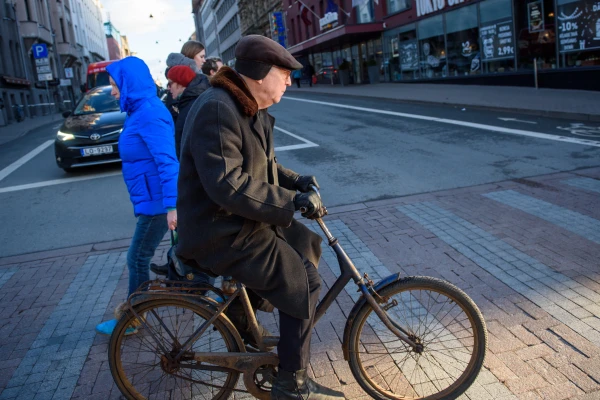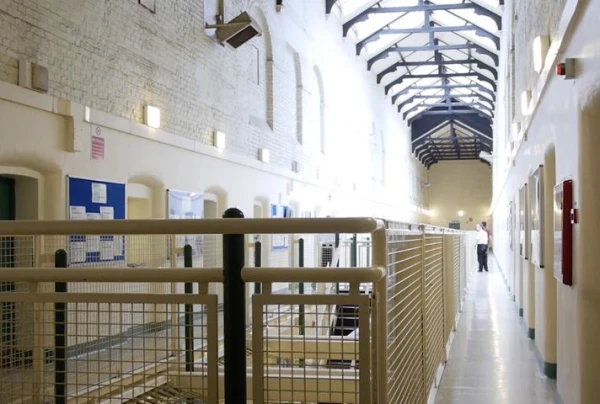
Drivers should prepare for significant changes that have been adopted recently.
1. Owners of "parked" cars will NO longer be fined if they do not have mandatory OSTA insurance
This provision was approved by the Saeima on November 6 in the final reading of amendments to the Law on Mandatory Insurance of Civil Liability of Motor Vehicle Owners. However, with a number of conditions.
It was previously believed that all car owners must purchase a policy, regardless of whether the car is on the road or quietly "sleeping" in the garage. The police were empowered to check those cars that have been parked for months in a parking lot, garage, or on the roadside, without going anywhere, and fine their owners for lack of insurance from 85 to 120 euros plus 2 penalty points. Understandably, this caused dissatisfaction among Latvians who use transport, for example, only in the summer.
From now on, vehicles parked in places "not accessible to the public" and for which measures have been taken to "exclude their accidental movement or use without the knowledge of the owner" will be exempt from OSTA.
If such a vehicle still causes damage to another person, it will be covered by the Guarantee Fund of insurers, and a claim for damages can be filed with any insurer.
2. OCTA will be required for bicycles
Self-propelled bicycles must be registered with the Road Traffic Safety Directorate (CSDD) and will require OCTA. This requirement will come into effect on May 1, 2026. Riding a self-propelled bicycle without OCTA from May 1 will incur a fine of 125 to 200 euros. In the absence of registration, the fine will be from 30 to 70 euros.
3. Stricter rules for renting electric scooters
Requirements for providers of vehicle sharing services and owners of self-propelled bicycles – electric bicycles or electric scooters – have been tightened.
The provider of the vehicle sharing service (from cars to electric scooters) MUST check the user's age before providing the service through a mobile application or website; ensure the presence of a driver's license of the appropriate category; conduct a reaction test to ensure that the user is not under the influence of alcohol or other intoxicating substances.
If service providers do not carry out age and driver's license checks through the app or website – a fine from 70 to 350 euros.
In the absence of a reaction test, merchants may also face a fine from 70 to 350 euros.
It is expected that the requirement to conduct a reaction test for vehicle sharing service providers will come into effect on April 1, 2026.
4. No more lifetime licenses in the EU
On October 21, an important vote took place in Strasbourg in the European Parliament, which will affect not only current but also future drivers.
In 2022, more than 20,000 people died on the roads of the EU (an average of 54 people per day). Most victims were pedestrians, cyclists, motorcyclists, and scooter drivers. Following this, the European Commission presented a series of proposals to modernize traffic rules in EU countries.
The new rules will come into effect 20 days after their publication in the "Official Journal of the European Union." EU countries must incorporate these rules into their national legislation within 3 years. Another year is allocated to prepare for their implementation.
5. Licenses will be valid for 15 years before examination
This means that driver's licenses will be valid for 15 years, and before their renewal, a mandatory medical examination will be required.
However, as noted by representatives of the European Union, the final decision on whether to make medical examination a mandatory condition for license renewal will be made by each EU member state. For example, countries may replace medical examinations with self-assessment forms or other assessment systems operating at the national level in each country.
It is also possible that for drivers over 65 years old, the validity period of licenses may be shortened, forcing them to undergo tests and skill recovery courses more frequently. However, this will also depend on each EU member state.
6. Driving a car – from 17 years; truck – from 18
Until now, in Latvia, it was possible to learn to drive a car from the age of 16, after obtaining a learner's permit (the so-called "white license"). The new rules stipulate that full driver's licenses can be obtained at 17, but until reaching adulthood, the driver must operate the vehicle under the supervision of an experienced driver.
All newly licensed drivers (regardless of age) will undergo a 2-year probationary period: stricter rules will apply in the first two years after obtaining the license than for experienced drivers.
The minimum age for obtaining a truck driving license will be reduced from 21 to 18 years, and for a bus from 24 to 21 years.
7. Licenses will also go digital
The new rules stipulate that within the next five years, digital driver's licenses available on smartphones will gradually become the primary format of driver's licenses in the European Union.
8. License revocation will apply throughout the EU
The current EU rules regarding offenders formally provided for punishment for violations committed by a citizen of another EU member state in that country. However, in practice, in 2019, more than 40% of traffic violations in other countries actually went unpunished – offenders were either not identified or not prosecuted.
The system stipulated that if a driver was banned from driving in one country (including the country where the driver's license was issued), they were often allowed to drive in the rest of the EU.
The new rules will eliminate this gap. Offenders must now be prepared for the fact that for serious violations committed outside their country, they may lose their driver's license, and this ban will apply in all EU member states.
It is expected that as soon as the authorities of a specific country decide to revoke the offender's driver's license, they must immediately notify the country that issued the driver's license, and within 15 days, the driver's license must be revoked, which will deprive the offender of the ability to participate in traffic in any of the EU countries.















Leave a comment